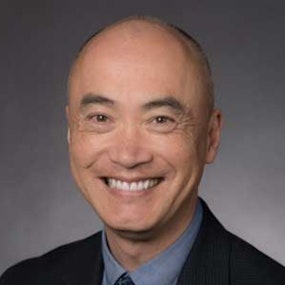ROBERT JOHNSON:
This is the award-winning Public Health Review Morning Edition for Wednesday, January 24 2024. I'm Robert Johnson. Now, today's news from the Association of State and Territorial Health Officials.
TAO SHENG KWAN-GETT:
We've really seen an alarming rise in opioid-related drug overdose deaths in Washington, particularly amongst young people.
JOHNSON:
Washington will provide life-saving doses of naloxone to high schools in the state. This is Washington State Health Department Chief Science Officer Dr. Tao Sheng Kwan-Gett.
KWAN-GETT:
And what we are doing is we are making two kits of naloxone. And every kit has two doses to all public high schools, alternative high schools, and specialized programs serving high school students in Washington. And this is so that they will have naloxone in-hand to be able to respond to potential opioid overdose events on their campuses.
JOHNSON:
Kwan-Gett says the decision will save lives and help reduce the stigma that can drive people away from treatment.
KWAN-GETT:
So, by providing naloxone to all schools in our state, we're sending a message that every community is impacted by the opioid overdose crisis. And it also sends a message that we care about every high school student in every community and that the lives of students in every community is worth protecting.
JOHNSON:
You can read more using the link in the show notes.
Flexible public health funding can be the key to solutions that meet community needs. Michigan uses preventive health and health services block grants to support health equity initiatives. Molly Cotant is with the Michigan Department of Health and Human Services.
MOLLY COTANT:
One of the successes that we've seen is an emphasis on funding programming and projects that are designed by the impacted population. This includes projects to holistically address gun violence, address diabetes and the American-Indian population. Media geared towards specific population groups, projects addressing men's health and others.
JOHNSON:
Colleague Laura de la Rambelje says success is built on staff education and understanding that equity is a priority.
LAURA DE LA RAMBELJE:
It's important to prioritize projects that work to increase health equity and to use data to inform decision-making. The data can illustrate need and also identify how different factors are affecting the health of different population groups, and this information helps to guide funding decisions.
JOHNSON:
de la Rambelje urges agencies to offer technical assistance to their grantees to improve their chances of success.
DE LA RAMBELJE:
This helps to ensure that organizations that are doing important work are able to utilize block grant funding to further their reach. It's also helpful to continually assess and address gaps in our work.
JOHNSON:
ASTHO has written a blog article about preventive health and health services block grants. You can read it now by clicking the link in the show notes.
Also today, ASTHO has job openings. The organization is hiring a Director of Public Health Data modernization, and a Senior Analyst of Public Health Infrastructure and Performance Improvement. You can apply for these and other positions by visiting the links in the show notes.
Finally, this morning, ASTHO produces a variety of email newsletters to help you stay informed about the latest in public health. Check out the options and sign up for one or more of them now using the link in the show notes.
Before we go, a reminder also to follow this newscast on your podcast player so you don't miss a single report and connect with ASTHO on social media. We're on LinkedIn, Twitter, and Facebook.
That'll do it for today. We're back tomorrow morning with more ASTHO news and information. I'm Robert Johnson. You're listening to the award-winning Public Health Review Morning Edition. Have a great day.





